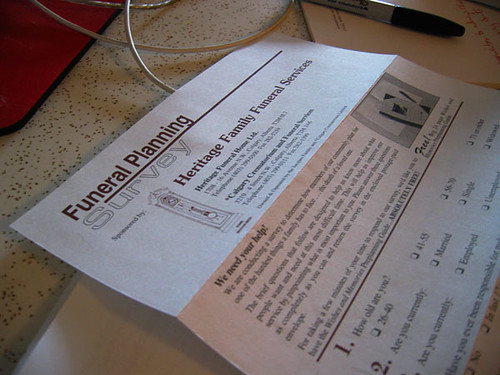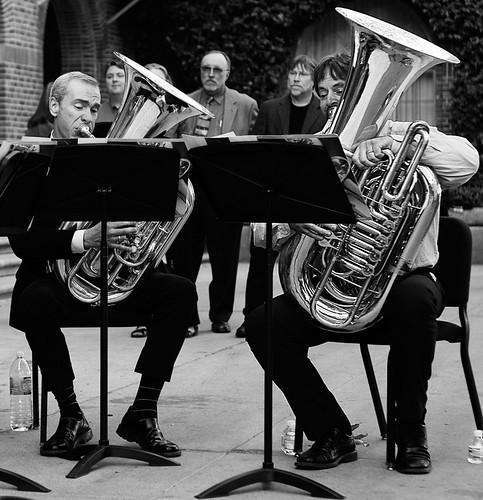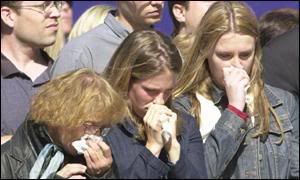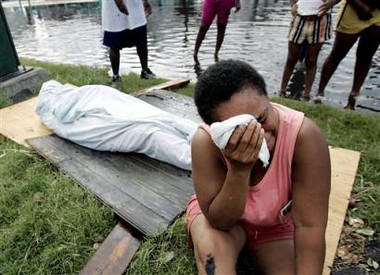By
Iya Ifalola OmobolaMy father passed a few years ago. It left a wenching feeling within my heart which I had not expected as we had not communicated in years. I was sitting at my desk, where I worked at the time for a theatre company here in Chicago. The director had answered the phone and I heard her ask if something were wrong and then she told me I had a call.
My mother was on the line. She casually told me, as she thought it would not matter much, that my father had died. I remember screaming. It was a pain so deep I could hardly stand it. I loved my father dearly but had refused to buy into his constantly trying to make me into the image of who he wanted me to be so I had stayed away from him. I had recently resolved to reach out for him despite our differences and then had received the call.
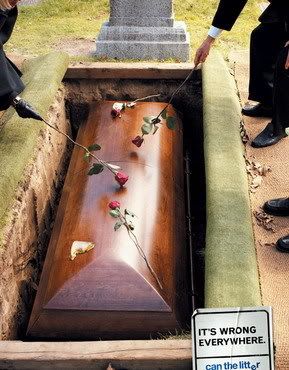
I couldn’t breathe – I couldn’t see straight. I had to leave. As I passed down the shoreway, I was pulled to the lake. I drove there, parked and went to the shoreline, sitting down with my feet in the water. I cried until the tears could no longer come. I stood up, a little shaken but much better. I am realizing now that what had happened was that my father had forgiven me. And I had forgiven myself. As Lake Michigan eventually connects to the ocean, I say it was the ocean's nurturing and loving spirit that helped me come to the peace I was able to walk away with from the lake. I never mourned his death again, after that.
Death is not a foreigner to me. I lost dear family members when I was fifteen to a tragic car accident, three at the time and another a month later. Then an aunt died a month after that. We had all been very close and it hurt badly. Earlier, I had lost a grandmother who I hadn’t been close to but still felt the loss. Death and I had become intimate. I knew it well. Or so I thought.
And then the inevitable came. My mother passed on the 29th of December, 2003. I came to realize that Death had only been peeking his head through the door. I knew nothing about the effects that can take place and the toll that can be taken from one’s being at such time. She had been getting progressively worse as time wore on. She smoked and her lungs no longer had the capacity to generate enough oxygen to her lungs. That combined with the current quality of air made it increasingly harder for her to garner the breath she needed to make it through her day. She had to be hooked to an oxygen machine and take periodic breathing treatments on a daily basis. Such treatment took a toll on her body and she grew weaker as time went on. The woman who raced around, fighting for equal rights in earlier days, and fighting to keep her youngest grandson out of difficulty in later ones, found herself confined to a chair, finding it taxing to do the simplest things such as washing a dish or combing her hair. And yet she never stopped being the supportive, loving, dedicated mother and grandmother.
This is how she had come to return to Chicago, a city she hated. I had separated from my husband in Ohio where she lived and she had come with me when I returned to Chicago to help raise my three younger children. She always made sure I knew how much she appreciated my existence and how proud she was of me. Always showing me that while the rest of the world may consider me a basket case, she could appreciate the decisions I made about my life and that of my children and was supportive of those choices, even if they sometimes taxed the very essence of who she thought she was.
A staunch Christian, she came to acknowledge and respect the spiritual path I walked, calling me the most Christian person she ever knew, as she witnessed my daily commitment to good character and sense of community. She would even stand behind me at times, in talking to the Ancestors. If I would get stuck on finding out what they wanted, my mother would suggest something and it would turn out to be what they wanted. She would even chastise me if I changed my shrines around, asking if I had their permission to make such moves.
When I decided to homeschool my children, the former school teacher in her came forth to assist in the process. Slowly, though, the tables turned and the one who was of assistance came to be one who needed the same. The weekend came. It was truly amazing. We had just moved into a miracle house that had been supplied by Spirit a month earlier. I had wanted to get my mother out of the tiny house in which we were living so she could be more comfortable and at ease. Christmas had come and gone. I had put up a decorated tree for her and went through the motions of putting gifts under the tree and having the children open them, so she could enjoy that scenario again.
I had a godbrother staying in the house who was undergoing some ancestral work to rectify some problems he was having. I had a goddaughter here who was receiving spiritual work. My mother started seriously declining the night before the work was completed. I stayed awake with her throughout the night to make sure she was alright. She had had serious bouts before and managed to overcome them. She had refused the hospital in the past and this was no different.
We completed the ceremonies and conducted a final spiritual cleaning. I was able to cleanse my mother during that time as well. The next morning, final work was completed and then my mother began to make her transition. I saw she was fading in her chair and had her carried to her bed. I sat with her and watched as tears came down from her eyes and her mouth began to bubble. I realized she was choking. I sat her up and propped her with my body for a while. I then had the children place pillows under her head as I leaned her gently against the pillows. I arranged her body and she summoned the strength to pucker up her lips and raise her head to kiss me. I had bathed her a little earlier, something we had both been struggling against as it was taking away the last little bit of dignity she had left but was needed.
I insisted on taking her to the hospital but she would open her eyes wide and begin to yank the air tubing out of her nose. I got her message and when I told her I wouldn’t take her, she relaxed. My oldest daughter, Dara, came and she and the children began to share shifts with watching my mother. I went upstairs to lie down as I was exhausted. My youngest son would come up periodically to give me reports. She seemed to be doing better. Aina, my younger daughter was giving her ice chips and they were reading to her. I started to sleep. I must have slept for about an hour when my son burst in the room to tell me that my mother had stopped breathing. I ran down the stairs and everyone was screaming at her to wake up.
We laid her down on the floor and I called 911. Aina had taken life guard classes over the previous summer and knew cpr. The operator walked her through it again as she went through five rounds of cpr before the ambulance came. The most beautiful thing about that particular aspect of the experience was that Aina and my mother had been butting heads seriously. 16 year old versus grandmother. But the last person that my mother would acknowledge was Aina. She didn’t notice any of the rest of us but when Aina would come into her vision, her face would get bright and she would smile at her. She, of course, was making her peace. Aina had that gift given to her before my mother died.
My youngest son, Akinola, age 9, who had become her self-appointed care-taker, was the one who was holding her hand when she passed. He says he saw tears in her eyes before she left. He seemed to be handling it well. The parametics tried but were unable to resuscitate her. We rode to the hospital, we three women, and left the boys with my house guests. Once, in touching base with them, Nola told me that I needed to get back because they were losing it. I told him to go to the ancestral altar and pray that his grandmother made a peaceful and smooth transition and that she was surrounded by light. He said he would.
When we came home, I asked him if he had prayed and he said that he did. He said he could feel my mother’s presence and that he promised her that he would take care of her plants. I told him that we were going to cremate her according to her wishes and that the ashes would probably be here with us. I asked him how he felt about that and he said he didn’t think he would like that very well. I told him that we would then make sure they were out of the way so he wouldn’t be able to see them. He then asked me what I was going to do with her ashtray, lighter and cigarettes (yes, she smoked to the very end.) I told him that I had planned on throwing them away. I asked him what he wanted to do with them. He said he wanted to put them by the ashes in case she wanted to smoke on the other side.
What could I say?
I am not sure what my twelve year old, Omoyele, was going through. I’ve seen him cry but he is so quiet, that it is difficult to know what he was thinking. My mother is the one who helped potty-train him. She is the one who took him back and forth to school when he first started. They had a special bond as well.
My mother staged her transition perfectly. I get the impression she wasn't quite ready to go but looked around and decided that she wouldn't have a better opportunity. The new year had not yet come in, she saw me settled into the kind of house she felt I deserved, she saw me surrounded by supportive non-familial people who would be able to "hold the one" for the initial moments. She saw that I was perhaps ready to step into the role of being the elder of the family. The more phenomenal occurences were yet to come.
Later that day, as I struggled over what I was going to do with the children without being forced to put them back in school, Dara came in announcing that she had found an after-school program that would take the children four hours a day, five days a week. They would provide tutoring with their homework and other activities, including swimming and basketball. I realized my mother had already begun her work from the other side. The boys had close friends whose parents came and swooped them up.
Then three friends – all walking my particular spiritual path - who had all cared for my mother and for whom my mother also cared but who had fallen out with me for some reason or another, all showed up at the house, in support, at about the same time. We were able to do a makeshift, spiritual service for my mother, with prayers, singing, testimony and divination to ensure that all was good. My daughters and I got to cry, moan and laugh, shedding the first layer of grief around those we had come to trust with our hearts again. It was an unbelieveable experience.
I went the next day to sign papers at the funeral home and pay my last respects to my mother. Wailing away, I walked into the place where she rested upon a cot . As I approached her, the most profound sense of peace enveloped me and I stopped crying. I smiled, looked down on her and told her what the immediate plans were. I told her I loved her and was able to kiss her before I left. It is a peace that lasted me through the harder moments.
I knew the emotional and mental anquish would be present for quite some time. I did not expect the physical pain as well. Others have explained it to me as actual cords that bind one to another and led me through the process of severing the cords from both ends so that my mother could be released. And that has been the hardest feat of all. She has passed, her transition was smooth, she has made her presence known from the other side. It was the letting go of that presence from the other side that was the hardest of all. I knew she had to get reoriented. I knew she needed to get adjusted to what is happening with her. I knew to pull on her keept her from making that journey. It was so hard. It felt like I was turning my back on my best friend.
Ah me, I thought I was ready to write this. It isn't easy.There is really a point to all of this. What I am really trying to say is that I believe that the nine years my mother’s being spent encompassed in my way of life helped her to make her transition smoothly. I believe that because she lived in the house where the Ancestors are revered, that her relationship to the other side was not so foreign. I believe that because she was able to resolve her issues before she left here, she will be a valuable asset to us from the other side. This too has been confirmed. For all of you who doubt the practicality and effect of the work you do at your ancestral altars, let me be the one to say unequivocably and without a doubt. The stuff works.







